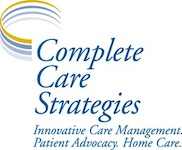Caring for an aging relative is a challenge, especially when it’s done across the miles. It’s difficult when you can’t see your relative, and to know when you need to be there in person.
Eight Helpful Hints to Ease Your Worries
1. Plan before a crisis. When it comes to long-distance caregiving, you need to plan for the unexpected. Your next visit, do some preparation. While there, set up a support system of friends, relatives and neighbors. Get to know these people to count on when you need someone to look in on your loved one. Also get to know their doctors.
2. Get copies of essential medical, financial and legal information. These include social security numbers, health insurance policies, medical histories, wills, power of attorney paperwork and healthcare proxies, all of which might be needed in an emergency.
3. Sit in on a doctor’s appointment. Get a diagnosis of your relative’s physical and mental problems, including a thorough assessment of what he or she can or cannot do independently.
4. Involve your parent. Honor their independence and remember that they are adults. You need to allow them the freedom to remain themselves and make their own decisions, even wrong ones, as they age unless dementia is involved.
5. Involve the rest of your family. In most families, one person assumes primary responsibility for caregiving, but long-distance caregiving is more than a one-person job. Whoever takes on this responsibility needs to call on other family members and friends for help.
6. Identify community resources sponsored by senior centers, churches and synagogues.
7. Get professional help from Geriatric care managers. Part social worker, errand-runner, family counselor, surrogate family member, and crisis worker, a geriatric care manager helps plan and manage care for older people, often overseeing household, financial, legal, health, insurance and family issues.
8. Maintain balance. Caregiving can have an emotional and physical toll on caregivers when done at a distance. Don’t let that happen. Take care of yourself by eating right, getting adequate rest and keeping up with your own well-being.
Take time for yourself. You not only deserve a break, you need one!
Lois Young-Tulin
Lois Young-Tulin, PhD, is an Assistant Geriatric Care Manager at Complete Care Strategies

